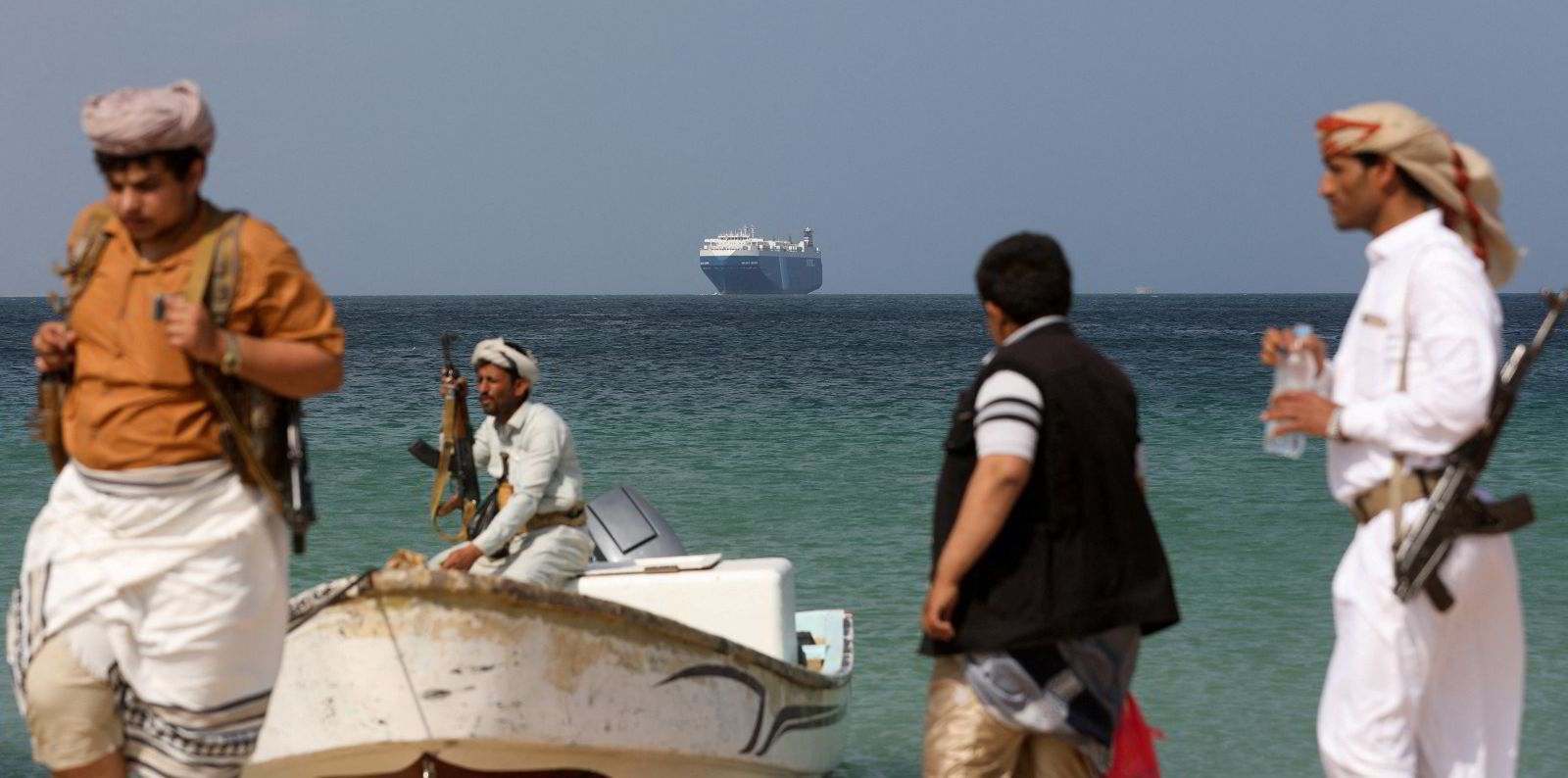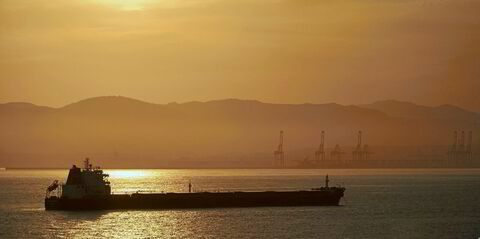TOP STORY
The turmoil in the Red Sea has turned into a full-blown crisis, which creates opportunities for some and unbearable risks for others. Almost as frequent as the Houthi attacks on commercial shipping were the announcements from owners declaring they were swerving away from the Suez Canal and the Red Sea. Here is a sample of some of the reporting on the topic from this week:
The US on Monday formally announced taking the lead in a multinational naval operation to protect the key sea lane. US defence secretary Lloyd Austin announced Operation Prosperity Guardian, a security initiative under the umbrella of the Combined Maritime Forces and the leadership of its Task Force 153. Several nations have already joined alongside the US, including the UK, Bahrain, Canada, Italy, Netherlands, Norway, Seychelles, Spain and later Greece.
Analysts are scrambling to assess what it could all mean for shipping. Clarksons Securities argued that if disruptions end, the container ship sector has downside potential, whereas tankers offer the best risk-reward bet. Suez Canal ship diversions are already having a bigger impact on shipping markets than the Ever Given grounding of 2021, Clarksons believes.
The impact of Red Sea vessel attacks on shipping markets will depend on how long companies continue to avoid the area — and that could be some time yet, reported Ian Lewis. Lucy Hine pondered whether diversions would see softening LNG carrier rates reverse in the first quarter of 2024. She previously reported that Suez transits for LNG carriers looked set to drop by 18% this month because of the threats.
Maersk boss Vincent Clerc, meanwhile, told reporters it could take weeks to “reopen” the Red Sea route. The liner giant was one of several companies to announce a pause and eventual rerouting of its ships around the Cape of Good Hope, adding 10-14 days to the Europe-Asia journey.
A key question to emerge from the route shift is: Can South African ports supply enough bunkers to an armada of Red Sea diverts? The country’s bunker traders say “yes”. They have the fuel, but it is not going to come cheap.
IN OTHER NEWS
Greek owner Evangelos Marinakis should have no problem offloading his container ship fleet following a $3.13bn deal to transform his Capital Product Partners into an LNG carrier company, brokers believe. The US-listed company has closed a transaction announced in November to acquire 11 LNG vessels from Marinakis’ private Capital Maritime & Trading. The focus now will turn to gradually selling the 15 boxships owned by Capital Product Partners.
Seven oil tankers blacklisted by the US for alleged oil price cap breaches are being de-flagged by Liberia, the head of the registry has told TradeWinds. The US Office of Foreign Assets Control has sanctioned eight tankers since mid-October for allegedly trading in Russian crude sold above the price cap of $60 per barrel that was set in December last year by the G7 group of nations.
A consortium led by Harim Group — the parent of bulker operator Pan Ocean — has emerged as the preferred bidder for South Korean shipping company HMM. Harim and its private equity partner JKL Partners have seen off a rival bid by logistics company Dongwon Group with an offer worth KRW 6.4trn ($4.92bn), according to South Korean media.
An age-old question looks closer to being resolved following a recent court decision: What makes or does not make a floating craft a ship? A ruling by a High Court of Singapore judge in a contract payment dispute has provided a threshold definition under the country’s laws.
ANALYSIS
Chemical tankers, regardless of size or type, have been largely absent from ship recycling reports throughout 2023. Their owners and operators say this is quite simply because they have been making a lot of money. A small forward orderbook for chemical tankers, combined with positive views of future market fundamentals, should keep scrapping levels low in 2024 as older ships trade on.
COMMENT
Editor-in-chief Julian Bray looks back at 2023 and names his Person of The Year. In his article, he notes how 2023 will go down as the year of the deal: agreed mergers, the division of spoils and political agreement on an unprecedented global scale. And all were inspired by charismatic individuals who are shaping the industry’s future.
AND FINALLY...

After 33 years, Terry Macalister bids farewell to TradeWinds in his final Wavelength column. In it, he reflects on changes in the industry and his time covering maritime as well as the highs and lows.
Here’s wishing all our readers a Merry Christmas and a happy and prosperous New Year!



